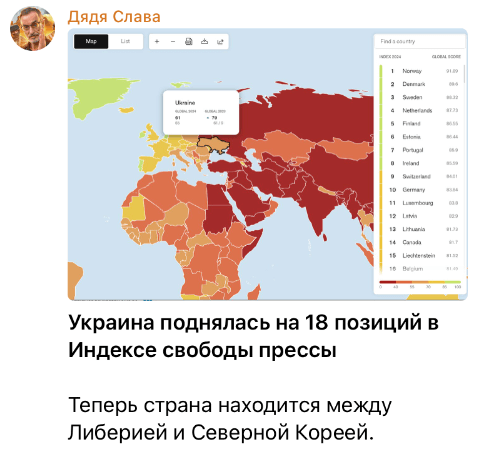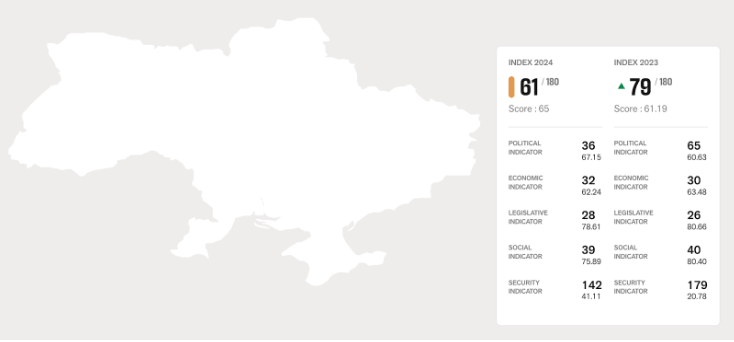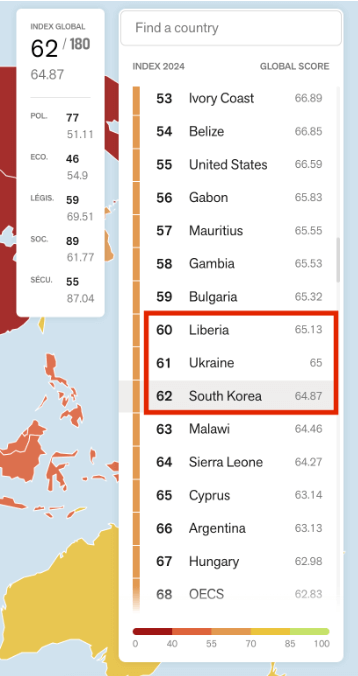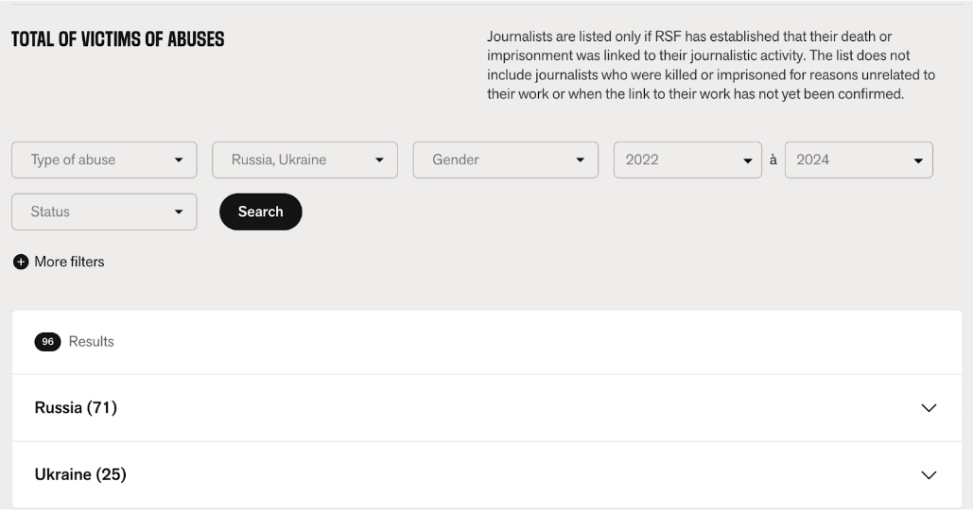Verification within Meta’s Third-Party Fact-Checking Program
There is information being spread online that Ukraine has risen 18 positions in the Press Freedom Index and now supposedly ranks between Liberia and North Korea.
This is false. In the Press Freedom Index, Ukraine is positioned between Liberia and South Korea.
Screenshot of the post
In 2024, Ukraine ranked 61st out of 180 countries in the “Press Freedom Index” by the international human rights organization “Reporters Without Borders”, rising 18 positions compared to the previous year, 2023.
Screenshot from the “Reporters Without Borders” website
However, Ukraine is positioned not between Liberia and North Korea, but between Liberia and South Korea — they are in 60th and 62nd places, respectively. In this year’s Press Freedom Index, Ukraine outperformed European countries such as Cyprus, Greece, and Hungary.
Screenshot from the “Reporters Without Borders” website
By deliberately comparing Ukraine to North Korea, propagandists aim to depict that there is a dictatorial regime in power in Ukraine that persecutes independent journalism. However, the dictatorship is actually in Russia. In this year’s ranking, Russia is in 162nd place out of 180 countries studied. Notably, since the full-scale invasion began, Ukraine has only improved its position in the ranking. In 2022, it ranked 106th, and in 2024, it was already 61st. Russia, on the other hand, has dropped 7 positions in two years.
The report notes that Ukrainian journalism has faced unprecedented security and economic challenges, such as the full-scale Russian invasion and Russia’s information warfare. Despite the restrictions of martial law, Ukrainian media continue to cover important topics for society and play a crucial role in exposing corruption among the country’s elite. It is noted, in particular, that the “Media Law” adopted at the end of 2022 brought Ukraine’s media sector in line with European legislation. At the same time, “Reporters Without Borders” point out that problems for Ukrainian journalism include the increasing role of the state, oligarchic control over the media, and gender inequality.
In contrast, in Russia, after the invasion to Ukraine in February 2022, almost all independent media were banned, blocked, and/or declared “foreign agents” or “undesirable organizations”. All private independent TV channels, except for cable entertainment channels, were banned from broadcasting. Several Western media outlets, such as Euronews, France 24, and the BBC, are no longer available in the country. Russian journalists work under the threat of reprisals based on vaguely formulated and hastily adopted draconian laws. The report notes that currently, 34 journalists and 4 media workers are imprisoned in Russia. Meanwhile, no journalist is imprisoned in Ukraine for media activities.
Since 2022, 25 journalists in Ukraine have suffered due to their media activities. However, they went missing, were killed, or were taken captive by the Russian army while covering events on the front lines. In Russia, during this period, 71 journalists have suffered, but for different reasons: the vast majority were detained by Russian security forces and are either still in custody or have been.
Screenshot from the “Reporters Without Borders” website with information on the number of journalists who suffered in Ukraine and Russia due to their professional activities
Earlier, we already debunked fakes of Russian propaganda claims that Zelenskyi, before May 21, is transitioning from a de facto to a de jure dictatorship and usurping power to avoid holding elections.
Attention
The authors do not work for, consult to, own shares in or receive funding from any company or organization that would benefit from this article, and have no relevant affiliations






